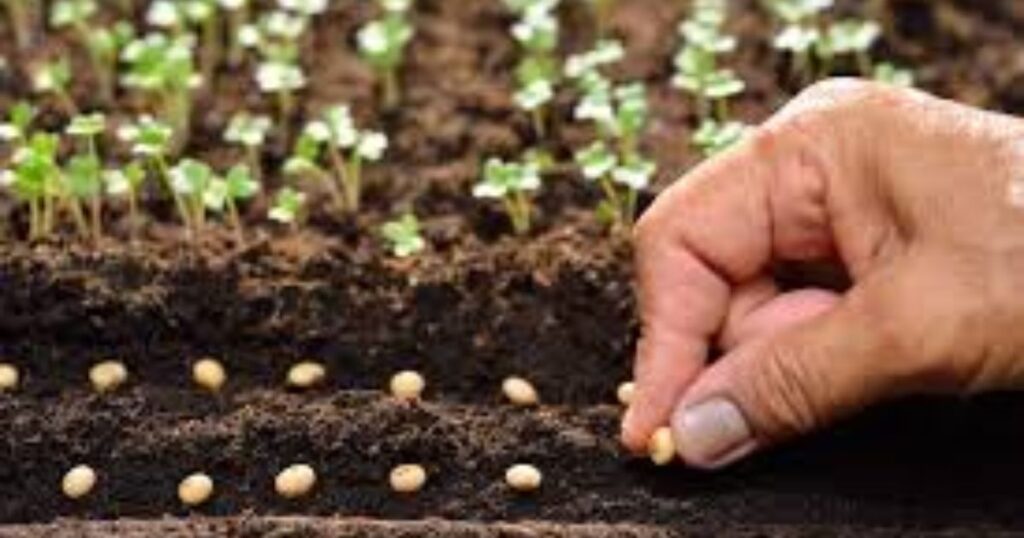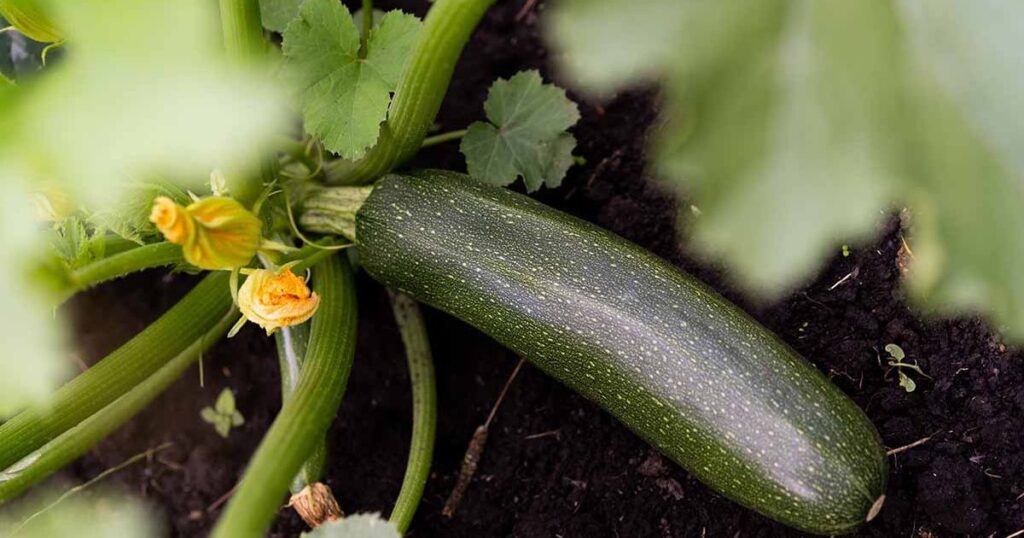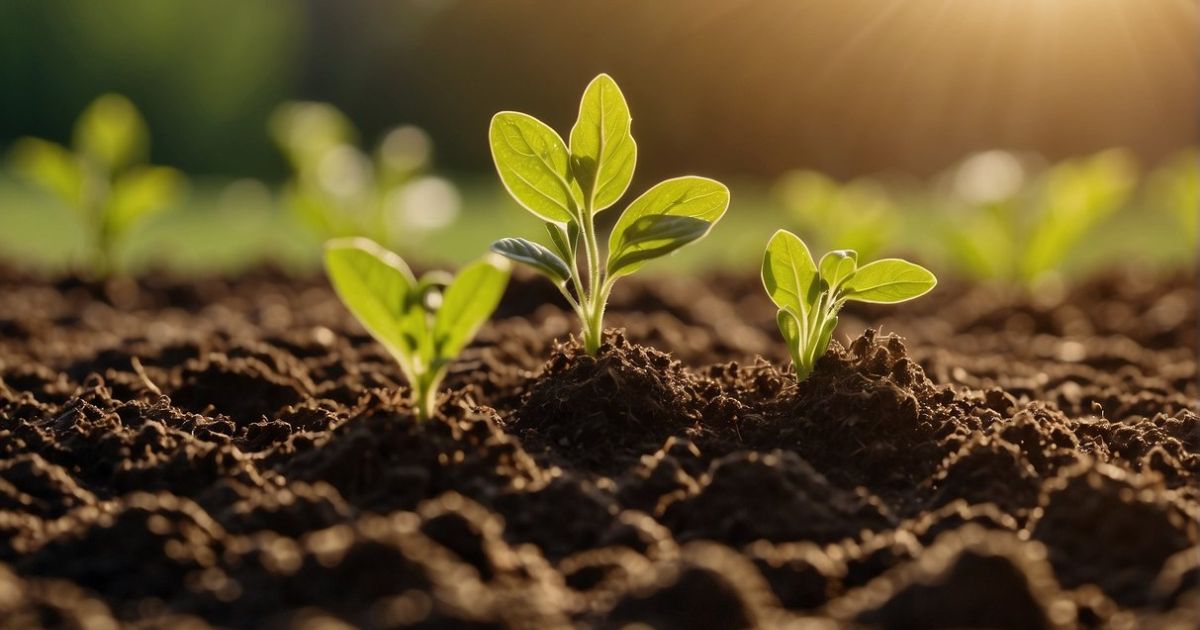Planting seeds is more than just a task for gardeners—it’s a biblical principle that carries deep spiritual meaning. In both the physical and spiritual world, sowing seeds is a metaphor for the effort we invest, the actions we take, and the kindness we extend to others. As we plant seeds, both literally and Bible Verses About Planting Seeds metaphorically, the Bible reminds us that we will reap what we sow. Just like the process of nurturing a zucchini plant, sowing seeds takes time, effort, and faith in the harvest that will come. Let’s explore what scripture teaches about sowing seeds and the lessons we can learn from God’s word.
The Spiritual Meaning of Sowing and Reaping
Sowing seeds isn’t just for gardeners. The Bible speaks about sowing seeds as a spiritual principle—the way we live, treat others, and follow God. Much like the way you nurture zucchini plants, spiritual sowing requires patience, care, and faith. Just as a farmer plants seeds in fertile soil expecting a harvest, we too must plant good deeds and trust in God’s blessings for an abundant harvest.
Here’s how the sowing and reaping process reflects in our spiritual lives:
Sowing Seeds: This represents the actions we take—whether good or bad
Harvest of Goodness: The results we reap are directly tied to the seeds we’ve planted.
Abundant Harvest: God promises that a harvest will come when we sow seeds of faith and goodness.
Biblical Planting: This phrase refers to aligning our actions with God’s will, knowing that we will reap blessings in return
5 Bible Verses About Sowing Seeds Bible Verses About Planting Seeds

The Bible contains numerous verses about sowing seeds and the importance of doing good to others. Here are five key verses that shed light on this important concept:
Galatians 6:7 (NIV)
“Do not be deceived: God cannot be mocked. A man reaps what he sows.”
This verse is a reminder that our actions have consequences. Sowing seeds of kindness, love, and generosity will result in a fruitful harvest of God’s blessings. On the other hand, sowing negative actions can lead to undesirable outcomes.
Corinthians 9:6 (NIV)
“Remember this: Whoever sows sparingly will also reap sparingly, and whoever sows generously will also reap generously.”
This powerful verse speaks to the importance of generosity in giving. When you give generously, whether it’s through your time, effort, or resources, God promises to multiply those blessings in your life.
Proverbs 11:18 (NIV)
“The wicked earn deceptive wages, but whoever sows righteousness reaps a sure reward.”
This verse reminds us that spiritual sowing leads to a harvest of goodness. Those who sow seeds of righteousness can be confident in God’s promise of reward.
Hosea 10:12 (NIV)
“Sow righteousness for yourselves, reap the fruit of unfailing love, and break up your unplowed ground; for it is time to seek the Lord, until he comes and showers his righteousness on you.”
Hosea encourages us to sow seeds for Christ and seek righteousness. When we do this, we open ourselves to receive God’s love and favor.
Ecclesiastes 11:6 (NIV)
“Sow your seed in the morning, and at evening let your hands not be idle, for you do not know which will succeed, whether this or that, or whether both will do equally well.”
This verse speaks to persistence. Like tending a zucchini plant that requires care at different times of the day, we should continue sowing seeds of faith and good deeds, trusting that God will bring the right harvest at the right time.
How to Plant Pumpkin Seeds and Grow Your Own Pumpkins: An In-Depth Guide
Sowing and Reaping Through the Zucchini Harvest

When it comes to gardening, zucchini offers a perfect example of how planting season and proper care result in a bountiful harvest. The key steps in a successful zucchini harvest reflect the spiritual lessons we can learn about sowing and reaping:
| Stage | Gardening | Spiritual Lesson |
| Planting Seeds | Zucchini seeds are sown in well-drained soil. | Sow your faith and good deeds in fertile ground. |
| Watering and Nurturing | Consistent watering ensures the plant thrives. | Consistently nurture your relationship with God. |
| Protection from Weeds | Keep weeds away so the zucchini can grow freely. | Guard your heart and spirit from distractions. |
| The Harvest | Zucchini produces abundantly when cared for properly. | Reap the abundant harvest from God’s blessings. |
Much like the zucchini harvest, reaping what you sow is directly related to the care and attention given during the growing process. When we take time to tend to our spiritual lives, God’s blessings manifest in unexpected ways.
How to Sow Seeds for Christ in Your Everyday Life
You don’t need to be a gardener to start sowing seeds for Christ. Each of us has the opportunity to plant spiritual seeds in our daily interactions with others. Here are a few ways to sow seeds and produce a harvest of goodness:
- Helping the poor: Just as a zucchini plant needs nourishment, so do the people around us. Being generous to those in need is a powerful way to sow seeds of faith.
- Faith in the Lord: Trust that God is working, even when you can’t see immediate results. Just as zucchini takes time to grow, so does your spiritual harvest.
- Good deeds: Like tending to a garden daily, consistently performing acts of kindness helps build a future abundant harvest.
- God’s servants: By serving others, we honor God and plant seeds that will bear fruit.
Reflecting on Bible Verses: God’s Promise of a Harvest
As we meditate on the Bible’s teachings, it’s clear that sowing seeds is a lifelong process. Whether through good deeds, helping others, or strengthening our faith, we’re planting seeds that God will grow into an abundant harvest. The verses we explored, like Galatians 6:7 and 2 Corinthians 9:6, remind us that God will multiply the blessings we sow.
As you go about your daily life, think about the seeds you’re planting. Will they produce a crop worthy of God’s blessings? Are you sowing righteousness and goodness? Reaping what you sow is inevitable—so plant carefully, nurture your seeds, and trust that the harvest will come in due season.
Join Us in Sowing Seeds for Christ

If you’re looking for ways to get involved, consider joining efforts to sow seeds for Christ. Whether through community service, church activities, or personal acts of kindness, every small seed planted helps bring about a greater harvest in the kingdom of God. Reflect on verses like Galatians 6:7 and allow them to guide your actions and faith. Together, we can plant seeds that will produce a harvest of goodness for years to come.
By following these biblical principles, we not only reap the blessings God has for us, but we also help others in their faith journeys. So, start sowing seeds today, trust in the harvest of goodness, and watch how God works in your life.
Frequently Asked Question
What does the Bible say about planting good seeds?
What does the Bible say about planting good seeds? It teaches that those who sow righteousness, generosity, and faith will reap a harvest of blessings from God.
What are the benefits of sowing seeds in church?
Sowing seeds in church fosters spiritual growth and strengthens the community by encouraging generosity and faith. It also opens the door to God’s abundant blessings and a deeper connection with His purpose.
How is faith like planting a seed?
Faith is like planting a seed; it takes time, care, and trust in God’s promise to see it grow. Just as a seed needs nurturing, faith flourishes through patience and belief in what is yet to come.
What does God mean by planting a seed?
God uses the concept of planting a seed to symbolize small acts of faith, kindness, or effort that grow into larger blessings or spiritual growth over time.
What is the spiritual meaning of planting seeds?
The spiritual meaning of planting seeds symbolizes the actions and intentions we sow in life, with the expectation of reaping positive outcomes. It reflects how our good deeds, faith, and generosity lead to blessings and spiritual growth.
conclusion
Bible verses about planting seeds teach us important lessons about life and faith. These verses remind us that our actions have consequences, and what we do today can shape our future. When we plant good deeds, we will see a harvest of kindness and blessings in our lives. Just like a gardener cares for their plants, we must nurture our relationships with others and with God. Each small act of kindness is like a seed that can grow into something beautiful. By following these teachings, we can create a positive impact in our community and share God’s love with those around us. Let us always remember the importance of sowing seeds of goodness in our lives.

I am Alexander James, a seasoned professional with 4 years of expertise, brings passion and skill to every project. Elevate your experience with my knowledge and creativity.



![Hollyhock Seeds: The Complete Guide to Success [2024]](https://seederabout.com/wp-content/uploads/2024/10/Hollyhock-Seeds-The-Complete-Guide-to-Success-2024-300x157.jpg)





